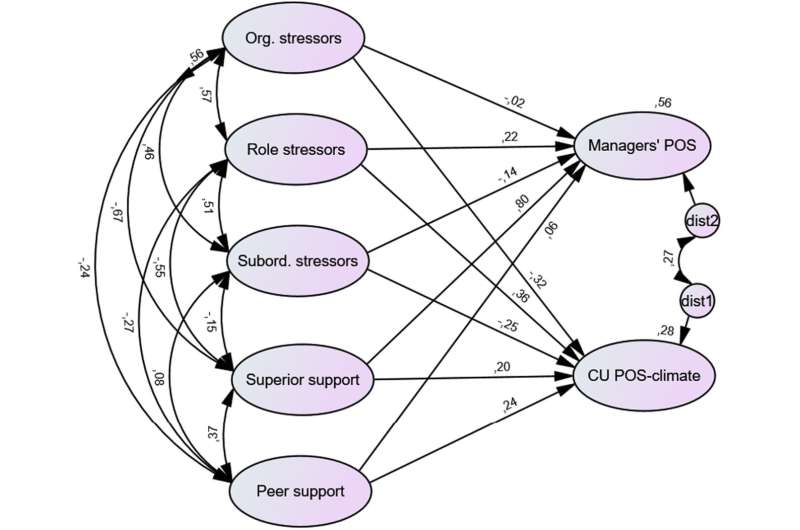Managers are crucial in motivating nurses to remain


Managers of health care units play a central part in nurses’ job satisfaction and desire to stay in their positions, research at the University of Gothenburg (now available in book form, in Swedish) shows.
In many parts of Sweden, there is a shortage of nurses. Their work environment has attracted much attention and a research project at Sahlgrenska Academy, University of Gothenburg, has now explained what makes nurses enjoy their work and want to stay in their jobs.
The book “Health-promoting health care for staff and patients” (in Swedish) is based on questionnaire surveys of 140 care unit (CU) managers and 1,800 hospital nurses in two regions, and on in-depth interviews with individuals and focus groups. Marianne Törner, researcher in occupational and environmental medicine at the Institute of Medicine, oversaw the study.
“We wanted to find out whether the nurses’ perceived organizational support affected their health, work satisfaction, and whether they intended to remain in them. We also wanted to see if these perceptions influenced the efficacy of health care, and the patient safety,” she says.
Importance of being seen and appreciated
The project shows that nurses who feel that the organization cares about and appreciates them are less stressed, more efficient, perceive their work as more meaningful and are less inclined to change jobs. It is also yields positive effects such as better teamwork and enhanced patient safety.
“We also note that the unit managers are pivotal to the nurses perceiving a high level of organizational support. It’s extremely important to the staff, for their managers to be present and available,” Törner says.
For their work to go smoothly, unit managers need office space at their CU. They must also be highly present and visible in terms of activities and have ample scope for influence and support from above, a reasonable administrative workload, and long-term liaison with a single HR expert.
“Proper support for the unit managers is broadly beneficial. It has a favorable effect on the nurses’ psychosocial work environment, which in turn helps to boost efficiency and patient safety.”
Reduced ethics stress
The research is based on the concept of Perceived Organizational Support (POS), which refers to the employees’ perception of how far the organization values their work and safeguards their well-being. The more positive staff’s perceptions are, the fewer ethical value conflicts they experience.
Being unable to give patients optimal care, contrary to their most profound occupational values, generates stress related to these conflicts (ethical or moral distress), which may in turn result in nurses’ burnout and urge to leave the profession. In contrast, those who feel well supported by their immediate superiors, other managers, and colleagues experience fewer ethical conflicts.
“We see that it’s important for there to be an ideological consensus on the care mission throughout the organization. ‘Ideological consensus’ means that everyone agrees that the patients’ needs are paramount, rather than, for example, keeping waiting times down or performing mandatory administrative tasks,” Törner says.
“We hope our research will make a difference. The purpose of the book is to make the research results available to managers, other decisionmakers and union representatives in health care, so that the results can be used in the organizations’ practical development work,” she concludes.
Source: Read Full Article